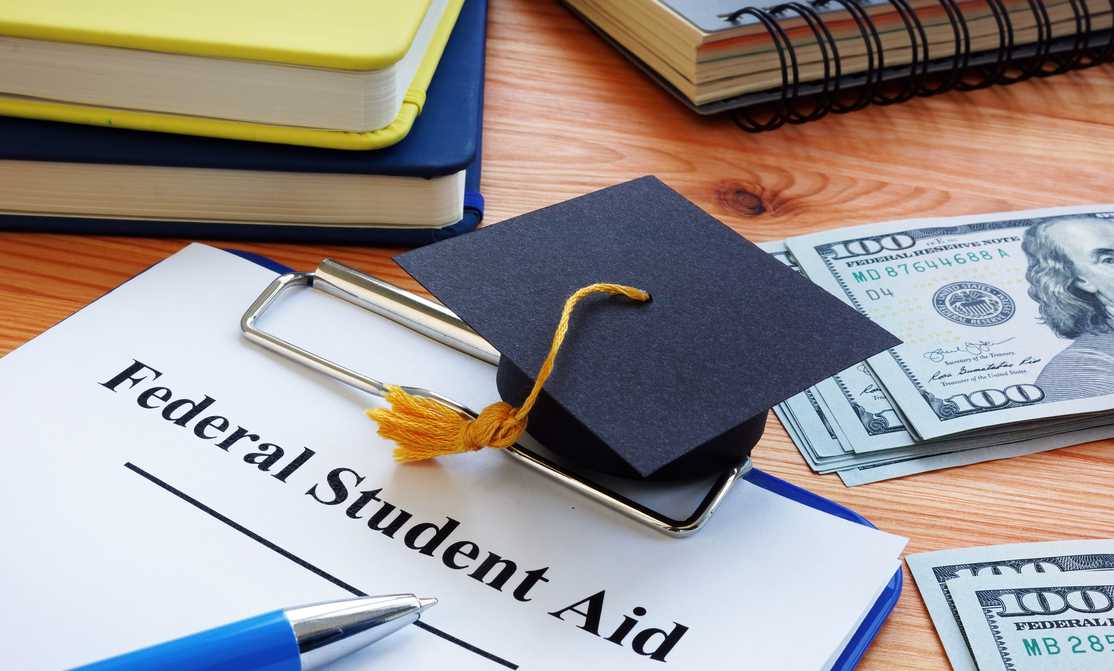When you finish high school, you may know how to balance a quadratic equation and debate the implications of Manifest Destiny, but we rarely graduate knowing how to manage our money.
Financial education is sorely lacking in many US schools. Although many states require high school students to take a personal finance class to graduate, nearly half of all states (46%) received a C grade or lower for their financial literacy curriculum, according to a 2023 review (PDF) by the Center for Financial Literacy at Champlain College.
In these states, schools may offer personal finance topics but the local school districts oversee the implementation with no state oversight. Or the courses are offered as electives only. This leaves many students ill-equipped to handle their finances as they enter college or the workforce.
Our CNET Money writers and editors have 60 years of combined experience in personal finance, but much of what we learned about finances came at the cost of missed opportunities and money missteps.
The good news is there are tons of resources to help you build your financial literacy. To help you get started, we asked our team members to share some of the key things they wish they’d known sooner.
What our team wishes we’d learned about money in school
These are some of the top lessons the CNET Money team recommends knowing to prepare you for your next chapter.
“I had no idea what I was signing on for at the time. To me, taking out $10,000 in loans might as well have been $100,000. Sure, I knew the second number was bigger, but they were both abstract figures I couldn’t wrap my head around.”
Student loans are an important tool that makes a college education more attainable for many. According to the Urban Institute, each year, up to 40% of undergraduates borrow federal loans. But the average student loan balance of almost $40,000 is a massive debt to shoulder so early in life. And when you graduate without learning how student loans work, many of us don’t fully grasp what we’re getting ourselves into.
Before applying for a student loan, make sure you fill out the FASFA — Free Application for Student Aid — to learn which federal grants, loans and other funding opportunities you’re eligible for. Also, apply for any and all private scholarships and grants you qualify for. The more free funding you can get, the less you’ll need to take out in student loans.
Next, you should know the difference between federal and private loans. Federal loans, funded by the US government, can be:
- Direct subsidized loans: The US Department of Education pays the interest on the loan while you’re in school at least part-time, during the six-month grace period after graduation or if your loans are in deferment.
- Direct unsubsidized loans: The loan interest accumulates during all periods, including when you don’t have to make loan payments (while in school or during deferment or forbearance). You can choose to pay this interest at any time.
- Direct PLUS loans: Your parents (adoptive, biological or stepparents) can apply for these loans to cover your education expenses. They are responsible for repaying them.
Private student loans are offered by banks, credit unions or other funding sources. They can help cover any remaining shortfalls, but beware that the terms are often less favorable than federal loans. They may have higher interest rates, and they don’t offer repayment assistance like forgiveness or income-based payment plans.
If a loan is your best option to pay for college, Johnston recommends doing some research before applying for one. Look into the degree you want and compare tuition costs at multiple colleges. And don’t overlook community college programs, she said. Many of them now offer paths to four-year degrees through partnerships with state schools — a path she wished she would have taken.
You should also know the average starting salary for the job you want in your area. Use that figure and your estimated loan amount to determine how much you’ll likely pay each month when your student loans come due. Johnston recommends the student loan calculators on StudentAid.gov.
The importance of building a savings habit
Understanding the power of compound interest is a lesson every graduate should embrace. Establishing a savings habit — even if you don’t have a ton to put away — can help you build an emergency fund and cover unexpected expenses without going into debt.
“When I graduated from high school, I received a decent pot of gifted cash. Had I put all that money in a one-year CD or high-yield savings account, I could have added a few hundred dollars to my savings — I was saving for a car. By the time I bought a car, I could have paid off a year’s worth of car insurance with the earned interest alone. But I wasn’t ever educated on these options at that time.”

Knowing where to keep your savings is equally important. Two great options to start with are:
- High-yield savings account: HYSAs differ from traditional savings accounts because they can offer APYs more than 10 times the national average interest rate. Look for accounts that require a low or no initial deposit and avoid banks that charge monthly fees.
- Certificates of deposit: A certificate of deposit is a special savings account that offers a fixed rate in exchange for keeping your money in the account for a set period, or term. CDs are best with money you can afford to lock up for a specific time because if you withdraw your money before the term ends, you’ll pay an early withdrawal penalty — typically, a few weeks or months of interest.
How to use credit cards responsibly (and why you should)
“Charging $10 here or $20 there didn’t seem like much at the time. I didn’t realize how compound interest — and only making minimum payments — would balloon this amount over time.”

Credit cards are an easy way to cover costs, especially when you’re working with an entry-level income. But they’re also an easy way to get locked into a never-ending cycle of high-interest payments that can hamper your finances for years to come.
That said, there are ways to use credit cards responsibly. Check out these resources to learn more:
- How interest works: Only paying the minimum on your credit card will cost you several times over thanks to interest charges.
- How your credit score works: Your credit score — the three-digit number lenders use to determine your creditworthiness — can affect everything from your ability to get a loan to the rate you pay on one.
- How to boost your credit score: Whether your score is low or you’re just starting out, these tips can help you improve it.
The best cards to start with: Student credit cards are an ideal way for those with limited credit history to establish credit and earn rewards.
Subscribe
How much you should keep in your checking account
“For a long time, I kept too much money in my checking account because I didn’t really understand the purpose of a checking vs. savings account.”

Opening a checking account to manage routine transactions is a great step for recent graduates. Look for an account that imposes no monthly fees, minimum balance requirements or overdraft fees and has a competitive APY. But even with the right checking account, you can lose out by keeping too much money in the account.
If you have considerably more money in your checking account than you need for everyday expenses, consider moving some of it to a high-yield savings account or CD. Most checking accounts pay little to no interest, but a HYSA or CD will allow you to maximize the amount of interest you can earn, growing your money faster.
How to do your taxes
“Figuring out how to file my taxes was scary. I was worried I’d make a mistake and the IRS would show up at my door. It’s something we all have to do every year — you’d think it would be more widely taught.”

If you’re a recent graduate expecting to add a new job to your schedule, be prepared to pay taxes on your income. Meeting with a tax professional can help you avoid mistakes and plan for the best outcome, but it also pays to know some basics, including:
Why you should contribute to retirement savings now
“Prioritize setting up your retirement contribution for each new job. It only takes a few minutes but can make a world of difference to your savings outcomes.”

Retirement may be in the distant future, but that doesn’t mean you should ignore retirement planning. As a recent graduate, time is on your side. Given the power of compound interest, saving a small percentage of your income over time can add up significantly — and the sooner you get started, the better off you’ll be.
Once you begin working, take advantage of tax-advantaged retirement savings accounts to save a portion of your income before it’s taxed, reducing your taxable income. Retirement plans offered by an employer may also match your savings contribution up to a limit. For example, some companies will match your contributions up to 6% of your income. Think of this match as free money rewarding you for saving.
Common tax-advantaged retirement savings plans include:
- 401(k): A retirement savings account established by employers to help employees save for retirement
- 403(b): A retirement account offered to employees of organizations such as schools, charitable organizations and other tax-exempt entities
- Traditional IRA: An individual retirement account not connected to an employer, which you can establish through a bank, broker or robo-advisor
Go forth and prosper
Now that you’re prepared academically for the next part of your journey, it’s an excellent time to focus on improving your financial literacy skills. Starting your next phase with a solid financial foundation will help you ease the transition and avoid unnecessary pitfalls.
As you move through life, try to incorporate a few of the top money tips that the CNET Money team wished we’d known about at your age.
Congratulations on your accomplishment! And remember, learning to manage money is a skill you will continue to improve for a lifetime.
Recommended Articles
Missed the Student Loan Forgiveness Deadline? Here Are Your Options
Missed the Student Loan Forgiveness Deadline? Here Are Your Options
Student Loan Forgiveness Deadline Expires Today. Last Call to Maximize Your Debt Relief
Student Loan Forgiveness Deadline Expires Today. Last Call to Maximize Your Debt Relief
Best Budgeting Apps for August 2024
Best Budgeting Apps for August 2024
12 Budget Hacks to Beat Inflation
12 Budget Hacks to Beat Inflation
Maximize Your Savings in 2024 With These Money Tips From 4 Finance Experts
Maximize Your Savings in 2024 With These Money Tips From 4 Finance Experts
Should I Save Money or Pay Off Debt First? Expert Tips to Help You Do Both





